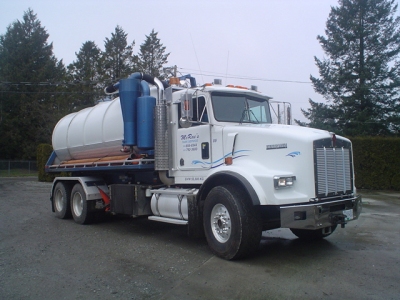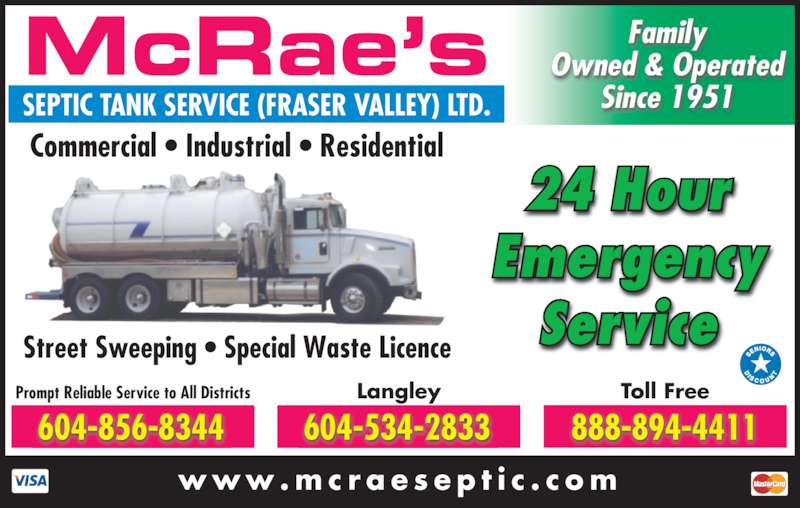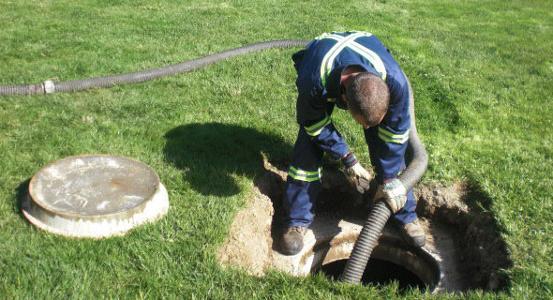 Another important task on the spring cleaning schedule is the care and maintenance for septic tanks. A septic tank should be pumped out every two to three years. As a licensed septic waste transporter in the province of British Columbia McRae’s Septic can complete your Septic Tank Inspection, then Clean and Pump Out the Tank if necessary. Give us a call today or request a quote online.
Another important task on the spring cleaning schedule is the care and maintenance for septic tanks. A septic tank should be pumped out every two to three years. As a licensed septic waste transporter in the province of British Columbia McRae’s Septic can complete your Septic Tank Inspection, then Clean and Pump Out the Tank if necessary. Give us a call today or request a quote online.
Tips to Maintain Your Septic System
- Regularly pump-out the septic tank when needed.
- Keep a record of pumping, inspections, maintenance and repairs.
- Map out septic tank and other system components. This is useful for accessing the system and will prevent damaging system components when doing home maintenance or yard work.
- Don’t park or drive heavy vehicles or equipment over the septic system.
- Don’t build structures, such as decks, patios or swimming pools, that would cover the absorption field or limit access to the septic tank.
- Don’t flush or use strong chemicals and bacteria-destroying products, such as drain cleaners, solvents, paint, paint thinners, floor cleaners, sink cleaners, motor oil, antifreeze, pesticides, and photo chemicals. These may disrupt septic tank or absorption system operation.
- Don’t flush materials that don’t easily degrade, such as paper towels, cotton swabs, personal hygiene products, medications, disposable diapers, coffee grounds, cat litter, cooking fats/oils, facial tissues, dental floss, plastics, grease or bones.
- Avoid garbage disposals or grinders because these substantially increase the accumulation of solids in the septic tank and in the absorption field.
- Direct drainage away from the septic system from roof, cellar/footing (sump pump) and surface water run-off.
- Plant grass and other shallow-rooted plants over the absorption field. Keep trees and long-rooted plants and shrubs away from the immediate area of the absorption area. Roots can grow into the pipes and clog the system.
- Conserve water. Check for defective toilet tank valves, repair leaky fixtures, and install appliances and fixtures that use less water and avoid wasteful practices.
- Regularly inspect and maintain any effluent pumps and alarms that may be part of your septic system.




